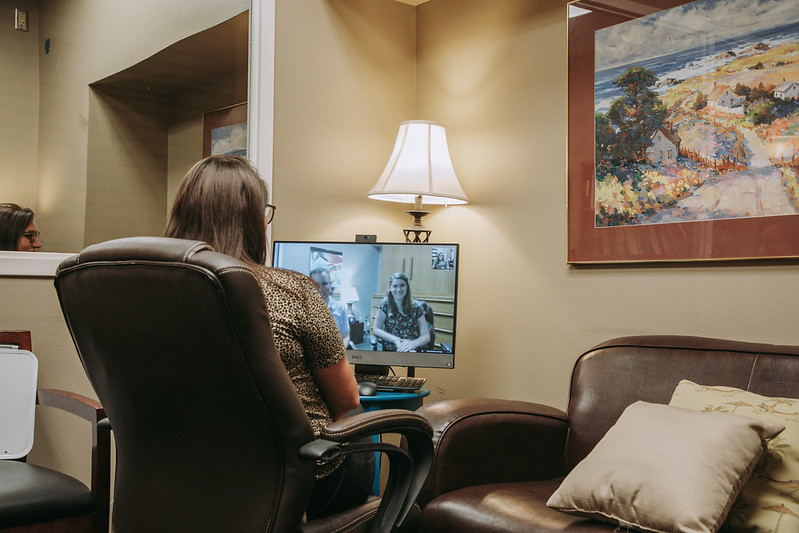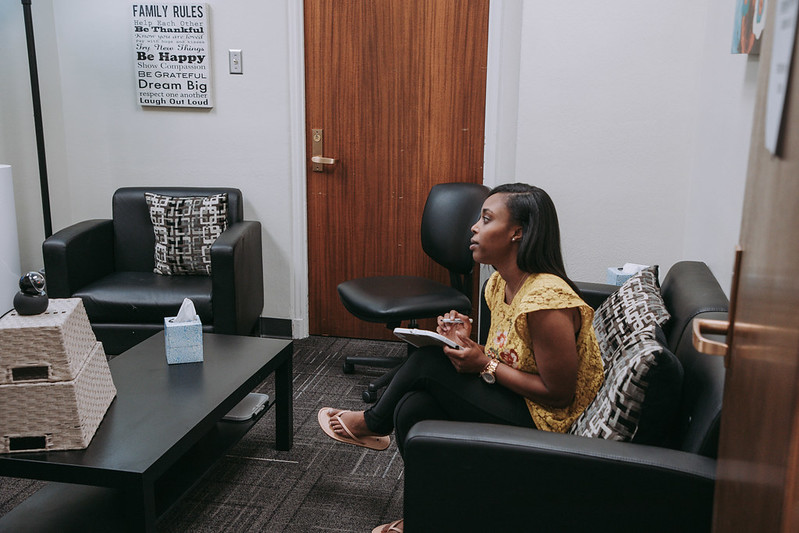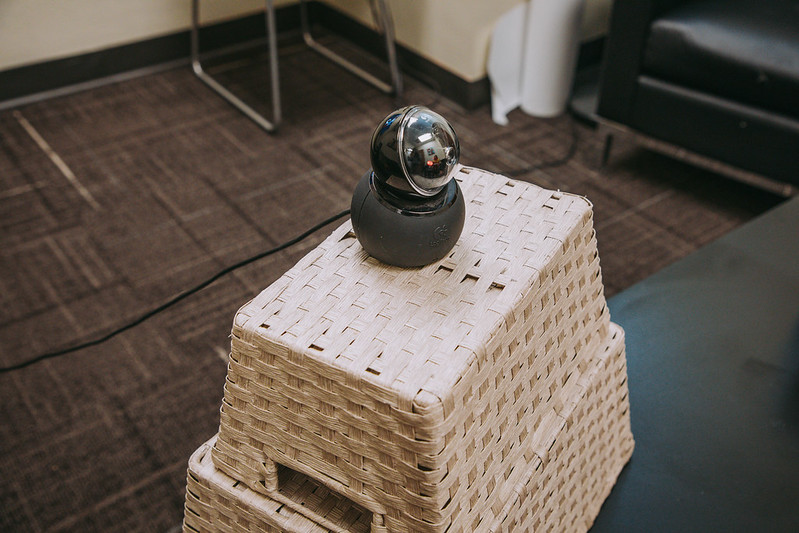
Additional telehealth therapy equipment will allow the clinic to extend its reach across community and state lines
The Family Therapy Clinic, housed in the Community, Family, and Addiction Sciences (CFAS) department, recently received new technology equipment provided by funding from the university and College of Human Sciences to further its telehealth services to clients.
 The Family Therapy Clinic is dedicated to providing affordable, high-quality therapeutic
services to individuals, couples, and families of Lubbock and surrounding communities.
Unique to Texas Tech, the Couple, Marriage, and Family Therapy graduate program allows
its who are pursuing either a master's or doctoral degrees to conduct therapy sessions
in the Family Therapy Clinic under the guidance of faculty supervisors.
The Family Therapy Clinic is dedicated to providing affordable, high-quality therapeutic
services to individuals, couples, and families of Lubbock and surrounding communities.
Unique to Texas Tech, the Couple, Marriage, and Family Therapy graduate program allows
its who are pursuing either a master's or doctoral degrees to conduct therapy sessions
in the Family Therapy Clinic under the guidance of faculty supervisors.
When the pandemic hit, the clinic was already in the midst of beginning to offer telehealth services through online therapy. It quickly became apparent that the clinic would need to bolster its technology in order to meet the growing need of telehealth services. The clinic received 3 new telehealth systems including all-in-one computers with high definition web cams.
"The equipment will be used to support the continuation of therapy services during Covid-19 where being in a confined space, for an extended period of time, prevents social distancing," said Director of the Family Therapy Clinic, Nicole Piland, Ph.D. "This support and implementation largely evolved during the COVID-19 pandemic in an effort to protect excessive virus exposure for student-therapists, supervising faculty members, staff, and clients."
Dr. Piland says that the new equipment allows for less risk of exposure compared to meeting with clients face-to-face. She is hopeful that the teletherapy delivery will be an ongoing component for graduate students training in the program.
"Historically our accrediting body, COAMFTE, did not allow tele-therapy hours to apply towards student program hours requirements," Dr. Piland said. "However, the pandemic has afforded us an opportunity to continue our training efforts using this modality without penalizing the student, as well as offer students the opportunity to develop the skills necessary for more effective service delivery that they may not have otherwise received."
 The CFAS faculty members are also working to add research opportunities in the department
to explore the benefits of teletherapy for specific client populations and develop
protocols for subpopulations who are either limited to accessing therapy services
or present greater clinical risks.
The CFAS faculty members are also working to add research opportunities in the department
to explore the benefits of teletherapy for specific client populations and develop
protocols for subpopulations who are either limited to accessing therapy services
or present greater clinical risks.
"Therapy can be a lifeline for those who might be awaiting other services like medication management or inpatient treatment options related to their presenting problems. The ongoing resource of mental health services, specifically relational-systemic therapies makes a tremendous difference in preventing a decline in mental health/wellness of clients."
